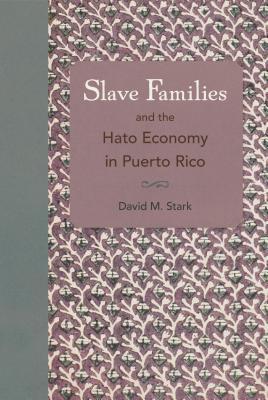Scholarship on slavery in the Caribbean frequently emphasizes sugar and tobacco production, but this unique work illustrates the importance of the region's hato economy--a combination of livestock ranching, foodstuff cultivation, and timber harvesting--on the living patterns among slave communities. David Stark makes use of extensive Catholic parish records to provide a
Download Slave Families and the Hato Economy in Puerto Rico - David M. Stark | PDF
Related searches:
Slave Families and the Hato Economy in Puerto Rico: Stark, David
Slave Families and the Hato Economy in Puerto Rico - Amazon.com
Slave Families and the Hato Economy in Puerto Rico on JSTOR
Slave Families and the Hato Economy in Puerto Rico, written by
Slave Families and the Hato Economy in - University Press of Florida
Slave Families and the Hato Economy in Puerto Rico by David M
Slave Families and the Hato Economy in Puerto Rico Hispanic
Slave Families and the Hato Economy in Puerto Rico. By David M
Sugar And Slavery In Puerto Rico: The Plantation Economy Of
The - Slavery and the Making of America . The Slave Experience
The Silence of the Black Militia: Socio-Historical Analysis of the
ALEJANDRO O'REILLY'S 1765 VISITA AND PUERTO RICAN
The impact of the slave trade on the Dutch economy - Leiden
Deathbed and other whispered promises: masters, slaves, and contested manumission in colonial slave families and the hato economy in puerto rico.
Slaves in thehato economy experienced more favorable conditions for family formation, relatively relaxed work regimes, higher fertility rates, and lower mortality.
1 jan 2017 in this important book, david stark proposes that during the seventeenth and eighteenth centuries in puerto rico and elsewhere in the spanish.
Hispanic american historical review 1 november 2018; 98 (4): 745–746.
Slaves in the hato economy experienced more favorable conditions for family formation, relatively relaxed work regimes, higher fertility rates, and lower mortality.
16 oct 2020 fields: early latin america, spanish caribbean, and slavery slave families and the hato economy in eighteenth-century puerto rico,.
The history of curaçao starts with settlement by the arawaks, an amerindian people coming the dutch state compensated the slave owners with 200 guilders per slave for the loss of their property.

Post Your Comments: